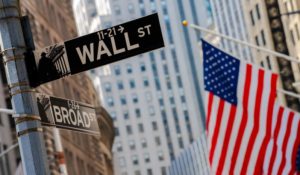
Scholars review the rise and fall of GameStop stock and urge updates to securities laws.
Securities laws are designed to protect investors—but which ones? The rise and fall, and rise again, of GameStop and other such “meme stocks” has led legislators, policymakers, and scholars to consider shortcomings in existing securities laws.
In a recent working paper, Moin A. Yahya, a professor at the University of Alberta Faculty of Law, and Victoria Chiu suggest that securities regulation must adapt to the modern era of investor behavior, which is influenced by the digital information exchange. According to Yahya and Chiu, online chatrooms and trading platforms allow retail investors to access and create information about peer behavior and popular value that existing securities laws did not anticipate.
Yahya and Chiu explain that existing securities laws are meant to protect investors from fraud by preventing market manipulation through general practices, such as “pump and dump” and “cyber-smear” campaigns, and through fraudulent practices, such as insider trading. Notably, securities laws are not meant to protect investors from financial losses, Yahya and Chiu insist.
Moreover, Yahya and Chiu explain that traditional economic thought rests upon the assumption that investors will behave rationally. In other words, because investors will act in their best interest they will, in theory, seek opportunities for profit and avoid high risk propositions that may expose them to significant losses. But the recent frenzy to purchase GameStop shares conflicts with this principle.
Between December 2020 and January 2021, the value of GameStop’s shares rose 1,700 percent from its all-time low of $2.57 per share to its high of $347.51. In the months leading up to January, institutional investors, such as large hedge funds, were short-selling the stock—an investment strategy based on speculation that a company’s share value will decline. When short selling, an investor sells borrowed shares of a security with the intention of repurchasing these shares at a lower price.
Once news spread in January on a Reddit forum called WallStreetBets that GameStop’s stock was 140 percent shorted, individual investors en masse bought the stock, leading its value to skyrocket. Many understood this craze as a concerted effort by disparate investors to subvert financial power dynamics. By purchasing shares and holding them at an elevated price, individual investors foreclosed institutional investors’ ability to short sell—that is, to profit off their GameStop gamble.
Rather than avoid GameStop’s ballooning shares, which were trading at a price “so volatile no one knew whether it would spike $20 or crash $50 in the next ten minutes,” investors bought up and held the stock with fervor.
Writing against the backdrop of the GameStop saga, Yahya and Chiu posit that regulators must understand, and eventually overcome, what they term the “meme stock paradox.” This paradox refers to the inherent tension embedded in securities law that requires disclosure meant to protect all investors but instead appears only to aid sophisticated ones. To illustrate this paradox, Yahya and Chiu point to the blame placed on the trading platform Robinhood, which restricted purchases and sales of GameStop stock in the height of its popularity.
To some observers, Robinhood’s interference with GameStop trades represented an affront to socioeconomic mobility. They saw a financial institution protecting hedge funds—that is, protecting itself—from experiencing massive losses at the expense of individuals who stood to make massive profits. To others, Robinhood’s interference reflected its compliance with the law and its obligation to safeguard the market from manipulation. To Yahya and Chiu, it underscores the conflict inherent within a system of disclosure rules and other regulations built on a flawed conception of the influence of information-sharing on the internet.
Yahya and Chiu insist that existing securities regulation focuses only on policing information that is accessible to institutional investors, whose vast resources allow for analyzing it. What securities regulation fails to account for is the collective power of individual investors, who pass information about trading through chat rooms and other online forums, such as WallStreetBets, according to Yahya and Chiu.
And this information is meaningful, they say. GameStop’s shares have remained at a value higher than its December low despite the meme fervor having subsided. In explaining this phenomenon, Yahya and Chiu speculate that GameStop’s stock has proliferated at an elevated price per share relative to its December 2020 cost because retail investors were able to capitalize on information that large hedge funds had not considered: trendiness and pride in ownership.
To Yahya and Chiu, this knowledge influences economic behavior, so it is an important piece of understanding where potential value lies. The connection between this knowledge of potential value and the potential ultimately being realized is what sophisticated investors and securities law failed to anticipate in the GameStop saga, Yahya and Chiu contend. When Robinhood constrained GameStop trading, it effectively punished individual investors for having this knowledge when institutional investors did not.
Yahya and Chiu conclude that regulators must update securities law to avoid stymying the success of individual investors for discovering new forms of information.



